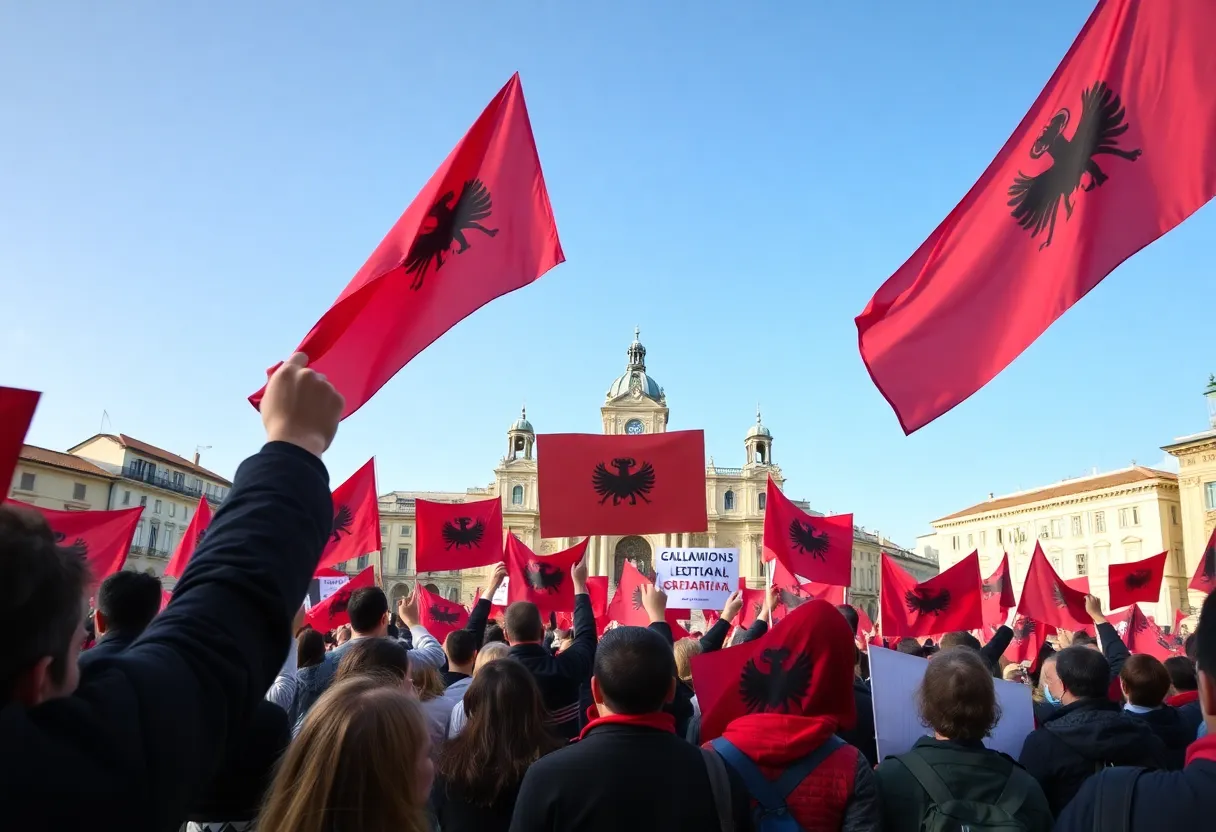News Summary
On May 11, 2025, Albania will hold a significant parliamentary election where Prime Minister Edi Rama aims for a fourth term. This historic election will also be the first for citizens since EU accession negotiations began, allowing 3.7 million voters to select 140 members of parliament. As both ruling and opposition parties grapple with challenges, including ongoing corruption investigations, the political landscape intensifies ahead of this crucial event shaping Albania’s future.
Albania Gears Up for Important Parliamentary Elections
Mark your calendars, folks! On May 11, 2025, Albania is set to hold a pivotal parliamentary election that could shape the nation’s future. This isn’t just any election; it’s particularly significant as Prime Minister Edi Rama seeks his fourth consecutive term in office amidst a cloud of accusations and aspirations.
A Historic Moment for Albanian Democracy
This upcoming election marks the first time since Albania formally opened EU accession negotiations back in July 2022 that citizens will be casting their ballots. With goals to join the European Union on the horizon, the political landscape is buzzing with activity. Around 3.7 million citizens will have the opportunity to vote for 140 members of parliament, a critical step for the nation’s ambitions.
For the first time, the Albanian diaspora will also have the chance to vote by postal ballot. This inclusion is expected to add an exciting dimension to the electoral numbers and may influence the overall outcome.
Ruling Party vs. Opposition Chaos
The ruling party, known as the Socialist Party (SP), kicked off its campaign on April 12, 2025. They have adorned their rally stage to resemble the EU flag, signaling their strong focus on EU integration as a core political goal. Their catchy campaign slogan, “Albania 2030 in the EU,” showcases a commitment to aligning with European standards and perhaps also pacifying some fears of corruption.
On the flip side, the opposition is a bit of a jigsaw puzzle with the Democratic Party (DP) at the forefront, joined by several smaller parties in a coalition dubbed the Alliance for a Magnificent Albania. Their proposals include raising average salaries to €1,200 and increasing pensions by 20%, aiming to boost the living standards of every Albanian citizen.
Challenges Looming Over the Candidates
Adding to this mix are newly emerging parties that advocate for reforms, but they currently hold limited sway in terms of immediate impact.
The Road to Results: What Polls Indicate
As we inch closer to election day, polls reveal that the Socialist Party is projected to garner between 49.9% and 50.5% of the votes, likely securing around 74 to 75 seats. Meanwhile, the Democratic Party coalition trails with an anticipated 37-41%, which would give them around 54 to 59 seats.
A Test of Democratic Maturity
These elections put Albania’s democratic maturity to the test; the recent changes to the electoral code, allowing a form of preferential voting, have raised hopes. Yet, many candidates from party lists still remain predetermined by leadership, which may limit true electoral choice.
Only time will tell how this complicated game of politics plays out. As the tension builds, Albanian citizens are gearing up to make their voices heard and pave the way for a potential new chapter in their story—one where they hope to steer closer to EU membership while continuing to combat corruption.
Deeper Dive: News & Info About This Topic
- Reuters: Albania Votes as PM Rama Seeks Fourth Term
- Wikipedia: Politics of Albania
- DW: Albania Election 2025 and EU Membership
- Tribune India: Albania to Hold Parliamentary Elections Today
- MSN: Albania Votes as PM Rama Seeks Fourth Term

Author: STAFF HERE MISSION VIEJO WRITER
The MISSION VIEJO STAFF WRITER represents the experienced team at HEREMissionViejo.com, your go-to source for actionable local news and information in Mission Viejo, Orange County, and beyond. Specializing in "news you can use," we cover essential topics like product reviews for personal and business needs, local business directories, politics, real estate trends, neighborhood insights, and state news affecting the area—with deep expertise drawn from years of dedicated reporting and strong community input, including local press releases and business updates. We deliver top reporting on high-value events such as Oso Fit 5K Fun Run and Community Health Fair, Walk Against Drugs & Community Fair, and National Night Out. Our coverage extends to key organizations like the Mission Viejo Chamber of Commerce and Providence Mission Hospital Mission Viejo, plus leading businesses in retail and education that power the local economy such as The Shops at Mission Viejo, Capistrano Unified School District, and Amazon Delivery Station. As part of the broader HERE network, including HEREAnaheim.com, HEREBeverlyHills.com, HERECostaMesa.com, HERECoronado.com, HEREHollywood.com, HEREHuntingtonBeach.com, HERELongBeach.com, HERELosAngeles.com, HERESanDiego.com, and HERESantaAna.com, we provide comprehensive, credible insights into California's dynamic landscape.


